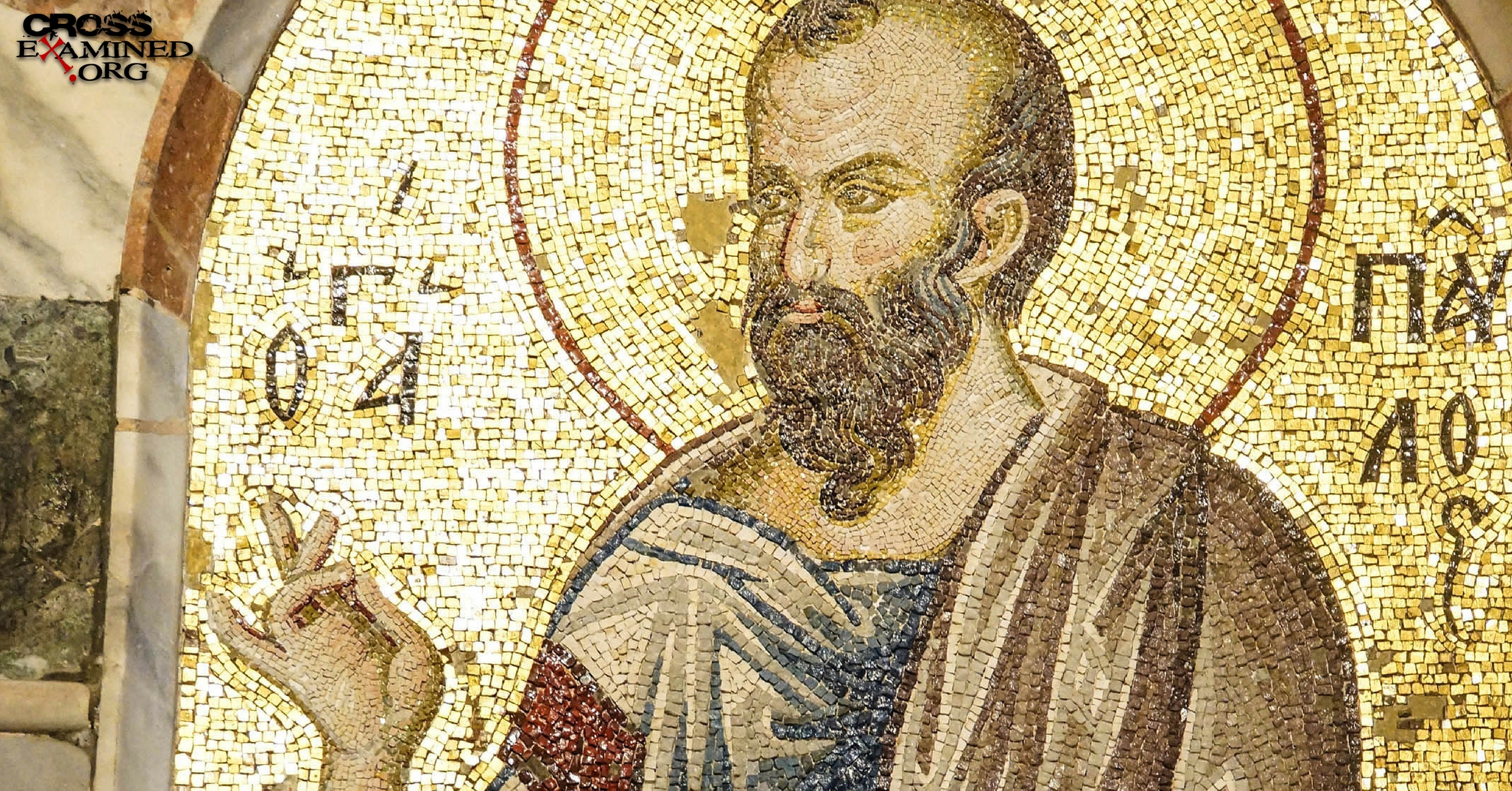The question, “Does God love Satan?” seemingly yields diametrically conflicting answers from conservative Christian theologians. Some assert that God cannot love Satan. In contrast, others claim that God loves Satan. So does God love Satan or not?
Answers to the question, “Does God love Satan?” cause further complications. If God does not love Satan, how could God be maximally and perfectly good? (If God does not love one being, then HE cannot be maximally and perfectly good.) Moreover, if God hates Satan for being evil, does HE also hate all those humans who reject and slander HIM? If God hates those who reject and slander HIM, HIS love is conditional. But isn’t God’s love unconditional?
The answer, “God loves Satan,” is also riddled with complications. If God loves Satan, how could a good God love the evil Satan? Could there be a semblance of evil in God because HE loves the evil Satan? Furthermore, if God loves Satan, should we also love Satan?
God Cannot Love Satan
Christian Q&A website, Gotquestions.org affirms that God cannot love Satan, “No, God does not love Satan, and neither should we. God cannot love that which is evil and unholy, and Satan embodies all of that. He is the enemy (1 Peter 5:8); the evil one (Matthew 6:13); the father of lies and a murderer (John 8:44); the accuser of God’s people (Revelation 12:10); the tempter (1 Thessalonians 3:5); proud, wicked and violent (Isaiah 14:12-15); a deceiver (Acts 13:10); a schemer (Ephesians 6:11); a thief (Luke 8:12); and many more evil things. He is, in fact, everything that God hates. The heart of Satan is fixed and confirmed in his hatred of God, his judgment is final, and his destruction is sure. Revelation 20 describes God’s future plan for Satan, and love for Satan has no part in it.”1
God Loves Satan
Dr. William Lane Craig claims that God loves Satan, “I feel no awkwardness whatever in affirming that God most certainly does love Satan. Indeed, what I should find awkward would be affirming that He does not! God is a perfectly loving being, whose love is not based on a person’s performance. Satan is a person, indeed, on the traditional conception an angelic person of unparalleled beauty and perfection among creatures. How could God not love him? The fact that that person is now fallen and unspeakably evil does not imply that God ceases to love him, any more than He ceased to love us when we fell and became enemies of God (Romans 5.10).”2
(Dr. Craig’s claim was in response to this question, “…Is it not true then that His love for all includes the Devil? For if it were not the case then there would be at least one eternally damned being whom God does not love or loves less, i.e., He is not all-loving or the greatest conceivably loving being.”)
Is Satan Totally Evil?
In his blog, Tough Questions Answered, Bill Pratt quotes Dr. Norm Geisler to contend that Satan is not totally evil, “Many people mistakenly believe that while God is totally good, Satan, or the Devil, is totally evil. They are polar opposites of each other.
This idea, however, is false. Satan, while being totally evil in a moral sense, is not totally evil in a metaphysical sense. Theologian Norm Geisler explains the distinction in his book If God, Why Evil?: A New Way to Think About the Question. Geisler writes:
The Bible speaks about Satan as “the evil one” (1 John 5:19) who is a liar by his very nature (John 8:44). Surely there is no good in Satan – is he not totally evil? Yes, he is completely evil in a moral sense, but not in a metaphysical sense. Just like fallen humans still have God’s image, even so Satan has the remnants of good that God gave to him as a created angel.
For example, Satan has good insofar as he is a creature of God, insofar as he has intelligence, and power, and free will. Of course, he uses all these God-given good powers to do evil; he is ever, always, irretrievably bent on evil. But this is only to say he is totally depraved morally, not that he is totally deprived of all creaturely good metaphysically.” (Emphasis Mine).3
Understanding God’s Love For Satan
The assertions, “God loves Satan” and “God hates Satan” need not be construed as being diametrically opposite or absolutely conflicting. Both these assertions could be true in a particular sense – the metaphysical or the moral.
Since Satan retains a remnant of the goodness of God’s creations from a metaphysical sense, we could reasonably sustain the notion that God loves Satan. In other words, God loves Satan only from a metaphysical sense.
But Satan is morally depraved. God cannot love the consequential deeds of a morally depraved being. So from this sense – the moral sense – the notion that God hates Satan (his evil deeds) could be sustained.
Significantly, an absolute denial of God’s love for Satan cannot be sustained. Just one reason may be sufficient to corroborate this assertion. If God hates Satan absolutely or totally, then should God not hate all those who reject and slander HIM?
But the Bible clearly teaches that God loved us when we were sinners (Romans 5:8). Therefore, if God loves a sinful, rebellious and slanderous man, on what grounds could God not love Satan? While it is true that both Satan and those men and women who rebel, reject, and slander God are doomed to an eternal damnation, the judgment of God need not violate HIS love for those who disbelieve and abuse HIM.
God’s judgment is contingent on the exercise of free will in the case of Satan and the unbelieving mankind. But God’s love for HIS creation is not contingent on HIS judgment. It is contingent on the goodness of HIS creation (God created all things good). Moreover, as it has already been asserted, neither Satan nor the unbelieving mankind is totally evil, for they still retain their creational goodness in the metaphysical sense. (The unbelieving humans could be morally good in certain or most instances. Satan too could, arguably, be morally good in certain situations, albeit in a passive sense, when he does no harm to his followers – not from the perspective of eternity, but from a worldly perspective.)
To conclude, the understanding that God loves Satan could only be sustained if the entailing complications could be resolved. These are the complications. If God loves Satan, then “how could a good God love the evil Satan?” Could there be a semblance of evil in God because HE loves the evil Satan? Furthermore, if God loves Satan, should we also love Satan?
How could a good God love the evil Satan? Satan is morally depraved and irretrievably bent on evil, but this is from a moral sense. However, Satan does retain a remnant of the goodness of God’s creations (intelligence, power, free will etc.). If Satan retains even a remnant of the metaphysical goodness of God’s creation, there is enough latitude for God to love Satan. So an absolute assertion that God hates Satan cannot be sustained. Therefore we could reasonably affirm that God loves Satan from the metaphysical sense and yet assert that God hates Satan from the moral sense.
Could there be a semblance of evil in God because HE loves the evil Satan? A maximally good and perfect being cannot be evil in the sense of both the metaphysical and the moral. If God loves Satan from a moral sense, then an argument that God could be evil may be valid. However, God’s love for Satan is from a metaphysical sense (not from a moral sense), hence there cannot be a remote semblance of evil in God.
Does God’s love for Satan imply that we should love Satan? The Bible mandates us to stand against the evil schemes of Satan and his entourage (Ephesians 6: 11). Moreover, Satan works against God’s people, so Christians cannot love Satan.
Notes
1https://www.gotquestions.org/does-God-love-Satan.html last accessed on 18th June 2017.
2http://www.reasonablefaith.org/does-god-love-the-devil last accessed on 18th June 2017.
3http://www.toughquestionsanswered.org/2015/03/02/is-satan-totally-evil/, last accessed on 18th June 2017.
Original Blog Source: http://bit.ly/2thjJBO












